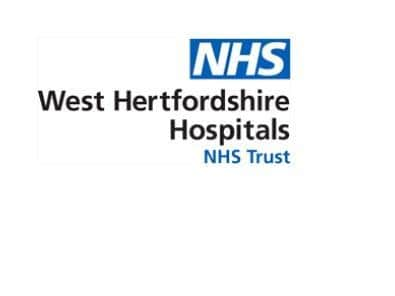Thousands waiting too long for non-urgent treatment at West Hertfordshire Hospitals NHS Trust
and live on Freeview channel 276
Nearly half of patients are waiting too long for non-urgent treatment at West Hertfordshire Hospitals Trust, new figures show, as disruption caused by the coronavirus pandemic continues.
With colder weather approaching, experts are warning that the NHS must be winter-proof to prevent seasonal flu and further Covid-19 outbreaks from bringing routine surgeries to a halt.
Advertisement
Hide AdAdvertisement
Hide AdAccording to NHS rules, patients referred for non-urgent consultant-led elective care should start treatment within 18 weeks.


But NHS data shows 49 per cent of patients on the waiting list for elective operations or other treatment at West Hertfordshire Hospitals NHS Trust at the end of July had been waiting longer – up from 15 per cent in the same month last year.
It means 7,512 patients had been waiting longer than the target time.
NHS trusts are normally expected to make sure no more than 8 per cent of patients are left waiting beyond the 18-week maximum target.
Advertisement
Hide AdAdvertisement
Hide AdBut non-urgent elective operations – such as hip and knee replacements – were suspended during the height of lockdown to free up beds for coronavirus patients, leading to delayed care for many patients across England.
Chief operating officer for West Hertfordshire Hospitals NHS Trust, Sally Tucker said: “We’re extremely sorry that patients are waiting longer than expected for treatment.
"We stopped accepting referrals, apart from urgent or suspected cancer cases, so that we could focus our efforts and resources on treating COVID-19 patients during the early phases of the pandemic.
"With fewer patients being treated for COVID-19 during the summer, we were able to start accepting referrals and restart services in July in a way that ensured safety for all our patients and staff.
Advertisement
Hide AdAdvertisement
Hide Ad"The needs of patients requiring urgent surgery were in our minds at the outset of the outbreak and, through great partnership working with Spire Bushey Hospital, we’ve been able to treat more than 1500 patients needing urgent and cancer related surgery since March 2020.
"Our staff continue to work really hard to keep our patients safe and identify which patients are the highest clinical priority.”
Nationally, 2.2 million people were still waiting for treatment after 18 weeks in July – the highest number for a single month since records began in 2007.
At 47% of those on the waiting list, it was also the worst performance on record.
Advertisement
Hide AdAdvertisement
Hide AdSome 83,000 patients had been waiting for over a year, the most for any month in more than a decade.
The lengthy waits are a “timely reality check on the challenges facing NHS services” as they deal with a backlog of patients since the pandemic hit, Gbemi Babalola, senior analyst at The King’s Fund think tank, said.
Professor Neil Mortensen, president of the Royal College of Surgeons, said patients who have been waiting months for treatment "cannot afford to wait until next spring".
He added: “We urgently need to build up our hospital reserves if we are to see this winter through.
Advertisement
Hide AdAdvertisement
Hide Ad"Flu, together with continuing local Covid-19 outbreaks, must not bring surgery to a standstill again, or thousands more will suffer.”
Meanwhile, the Society for Acute Medicine has called on the Government to “publish full winter crisis planning proposals which include investment into staffing and estates to cope”.
Its president, Dr Susan Crossland, said: "The NHS is struggling hugely despite the drop in elective work and we are now seeing increased pressures with admissions creeping up.
“The reduction in acute beds is a major concern for us. We cannot allow corridor care to return."
Advertisement
Hide AdAdvertisement
Hide AdSaffron Cordery, deputy chief executive of NHS Providers, said the focus should not be solely on what Covid-19 stopped the NHS from doing, and called for the hard work of frontline staff to be recognised.
She added: “We are in a much better place than many would have predicted a few months ago.
“The recovery from the peak of the pandemic was always going to require step by step increases in activity and the NHS is well on the way to restoring services.”